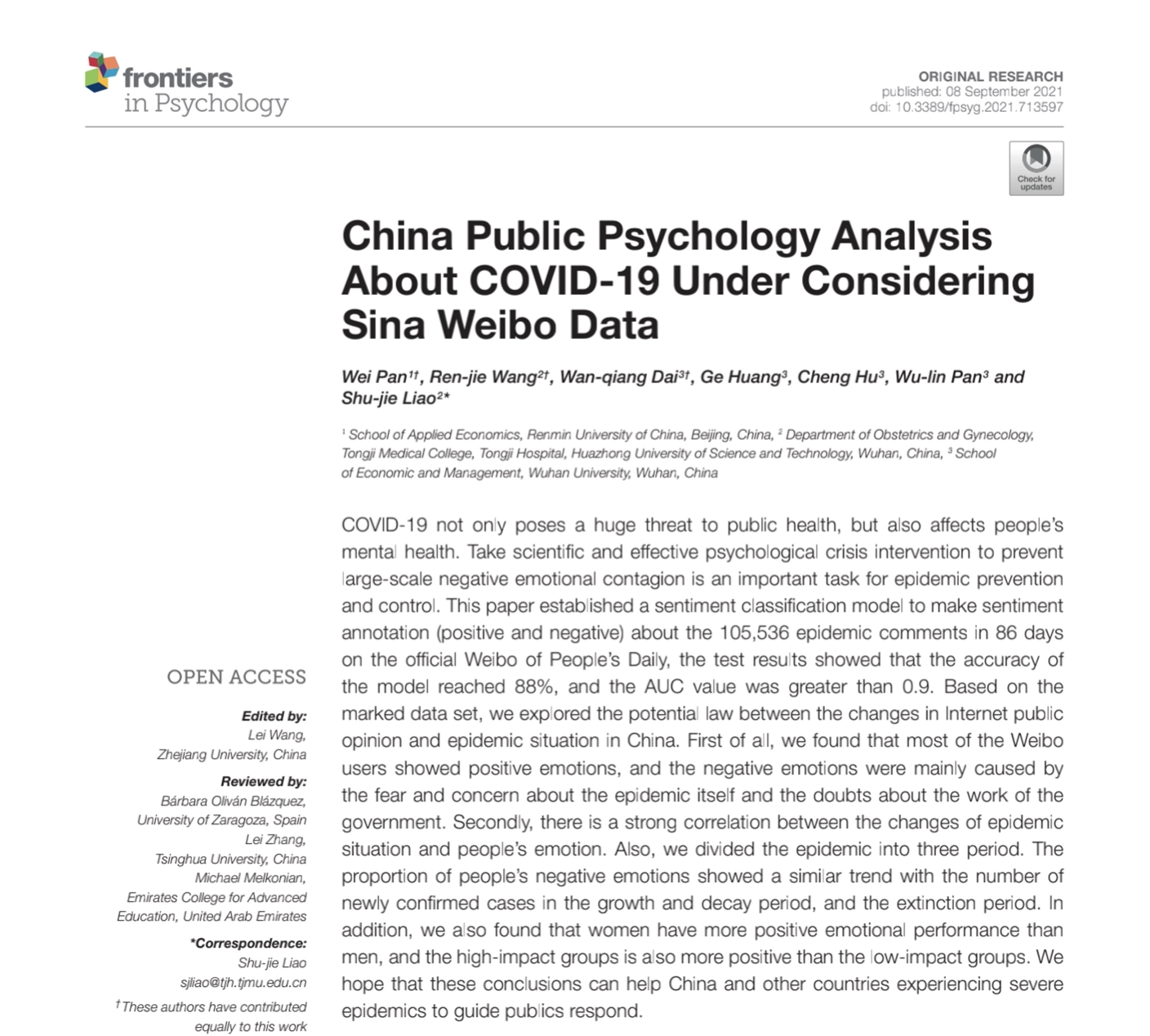Dr. Wei Pan recently had a paper published in the Frontiers in Psychology.The paper titled‘China Public Psychology Analysis About COVID-19 Under Considering Sina Weibo Data’, was coauthored with Renjie Wang and Shujie Liao from Department of Obstetrics and Gynecology, Tongji Medical College, Tongji Hospital, Huazhong University of Science and Technology, Wangqiang Dai, Cheng Hu and Wulin Pan from School of Economic and Management, Wuhan University.

Abstract
COVID-19 not only poses a huge threat to public health, but also affects people’s mental health. Take scientifific and effective psychological crisis intervention to prevent large-scale negative emotional contagion is an important task for epidemic prevention and control. This paper established a sentiment classifification model to make sentiment annotation (positive and negative) about the 105,536 epidemic comments in 86 days on the offificial Weibo of People’s Daily, the test results showed that the accuracy of the model reached 88%, and the AUC value was greater than 0.9. Based on the marked data set, we explored the potential law between the changes in Internet public opinion and epidemic situation in China. First of all, we found that most of the Weibo users showed positive emotions, and the negative emotions were mainly caused by the fear and concern about the epidemic itself and the doubts about the work of the government. Secondly, there is a strong correlation between the changes of epidemic situation and people’s emotion. Also, we divided the epidemic into three period. The proportion of people’s negative emotions showed a similar trend with the number of newly confifirmed cases in the growth and decay period, and the extinction period. In addition, we also found that women have more positive emotional performance than men, and the high-impact groups is also more positive than the low-impact groups. We hope that these conclusions can help China and other countries experiencing severe epidemics to guide publics respond.
Other information
Publication Date:2021
Journal:the Frontiers in Psychology
Journal Issue: 08(2021)
DOI: 10.3389/fpsyg.2021.713597
Read the paper here.